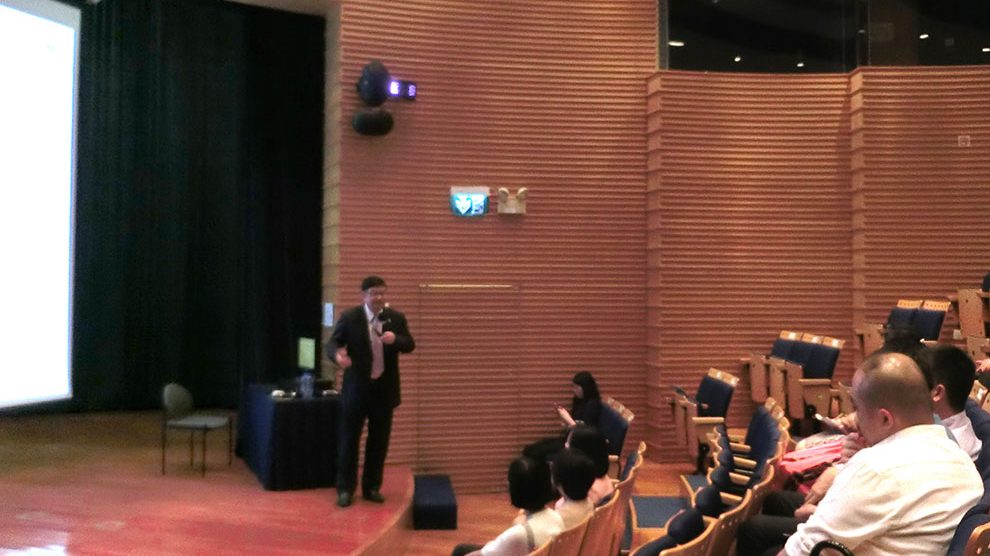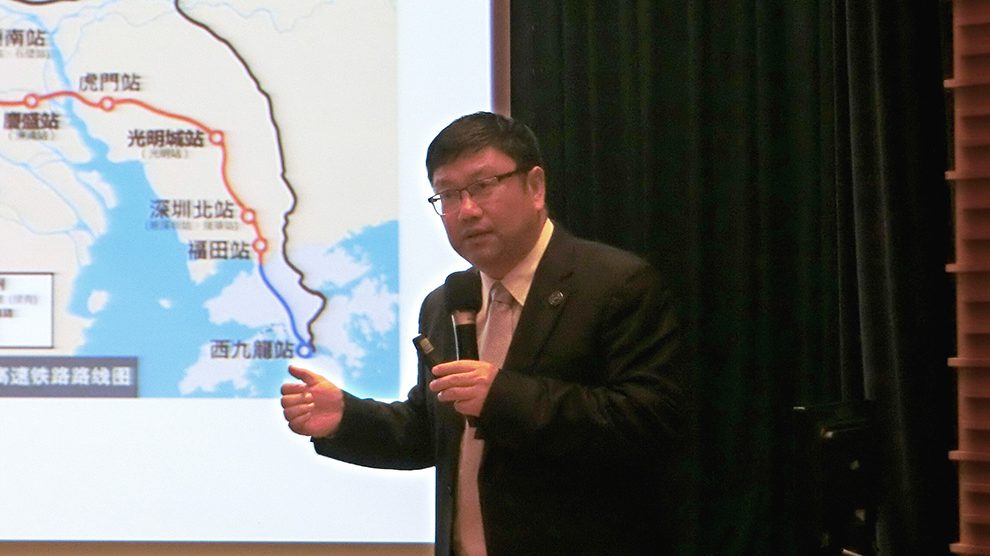In order to realise the Macao Government’s priority of recent years regarding positioning the city as a World Centre of Tourism and Leisure, local authorities need to add to the equation the neighbouring Chinese city of Zhuhai, especially Hengqin Island. So said Professor Bao Jigang, Dean of the School of Tourism Management at Sun Yat-Sen University, in Guangdong Province.
Prof. Bao made the remarks during a talk held at IFT on 9 May. His address was focused on Macao and Zhuhai’s potential for cooperation under a plan to develop a city cluster in the Guangdong-Hong Kong-Macao Greater Bay Area.
The Greater Bay Area project is to encompass the efforts of the 2 Special Administrative Regions of the People’s Republic of China, namely Hong Kong SAR and Macao SAR; and 9 cities from Guangdong Province, namely Guangzhou, Shenzhen, Zhuhai, Foshan, Huizhou, Dongguan, Zhongshan, Jiangmen and Zhaoqing. It aims to advance and integrate development in the Greater Bay Area in several sectors, from economy and trade, to environment protection and education.
Prof. Bao said he envisioned a cooperation model for Macao and Hengqin Island – the latter a place under the jurisdiction of Zhuhai – based on complementary tourism offerings in leisure and entertainment. He noted that Macao lacked land resources to develop additional tourism products; but it could cooperate with Zhuhai where there is still a lot of space available for development, particularly in Hengqin.
“There is a significant chance that the combined efforts of Macao and Hengqin will prove to be ‘1 plus 1 more than 2’,” Prof. Bao remarked.
Prof. Bao’s research interests include tourism planning and the impacts of tourism. He is also the Director of the Monitoring Centre for UNWTO Sustainable Tourism Observatories, established following a 2010 collaboration agreement between Sun Yat-Sen University and the World Tourism Organization (UNWTO).
The Chinese scholar acknowledged that the Macao and Zhuhai tourism industries were heavily reliant on Asian visitors, especially those originating from Greater China. He said Macao should make use of its ties with Europe to attract more long-haul visitors to the region.
“Under the context of the Greater Bay Area, Macao also has proposed the introduction of multi-destination packages. Can this type of package attract long-haul visitors to visit [Macao] and other Mainland cities? I think there is a chance it will work,” Prof. Bao added.
He noted however that the cities of Macao and Zhuhai were still in aggregate economically less competitive than the group formed by Hong Kong, Shenzhen and Guangzhou. He said that, despite the rapid increase in air traffic in recent years, the combined annual throughput of flight passengers at the Macao and Zhuhai airports was still behind that of the airports of Hong Kong, Shenzhen or Guangzhou.
To make the Macao-Zhuhai partnership more competitive, Prof. Bao said there was a need to develop the 2 cities as a single hub. One of the suggestions he made to promote that goal was to centralise all air traffic in the Zhuhai airport, and expand the infrastructure to connect Macao to the Zhuhai airport. That would stimulate the growth of international and domestic air traffic to the Macao-Zhuhai area, and enhance the development of both cities, he said.










